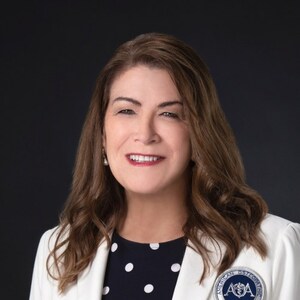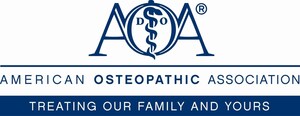CHICAGO, Jan. 16, 2019 /PRNewswire/ -- More than 4 in 5 American adults (86 percent) take vitamins or supplements, according to a recent online survey conducted by The Harris Poll on behalf of the American Osteopathic Association. However, only about a quarter (24 percent) of those taking vitamins or supplements received test results indicating they have a nutritional deficiency.
Most people have no need to take vitamins and are wasting their money on supplements that are unlikely to improve their health and may actually harm it, says Mike Varshavski, DO, an osteopathic family physician. People with a documented nutritional deficiency can often correct the problem more effectively through their natural diet. Also, some supplements have been shown to decrease the effectiveness of common medications including warfarin, insulin and alprazolam (Xanax), according to Dr. Varshavski.
"Numerous investigations show the alleged benefits are unproven and in the worst cases, vitamins and supplements can be harmful," says Dr. Varshavski. "In particular, I advise patients that this industry is highly unregulated, so it's important to research manufacturers to ensure their products actually contain the nutritional supplements advertised."
American Osteopathic Association policy supports legislation requiring dietary supplements to undergo pre-market safety and efficacy evaluation by the FDA and requests the agency monitor all products marketed for human consumption, including nutritional supplements.
As the multibillion dollar market for vitamins and supplements grows, Dr. Varshavski counsels patients to rethink whether these items should be integrated into their preventive care plan. The money spent on supplements could be used to add high nutrition foods to their diets, he added, which is more likely to promote overall health.
For those who insist on supplementation, Dr. Varshavski encourages patients to choose vitamins that carry a seal of approval or certification by a trusted, independent organization. While such verifications cannot guarantee efficacy, they can at least assure consumers that the product contains the correct ingredients in the correct amounts, without any bacterial or toxic contamination.
Why people take vitamins
The survey asked American adults how they decided which vitamins or supplements to take. The top three sources of information were:
- Recommendations from a physician (51 percent)
- Their own research, based on personal needs (39 percent)
- Recommendations from a friend or family member (22 percent)
The survey also found 13 percent of Americans choose their vitamins or supplements based on what items interest them in stores, while another 13 percent go off of recommendations from a trainer, exercise professional or nutritionist, and 6 percent base their choices on endorsements by celebrities or social media influencers.
"Obviously, there is a great need for real education on this topic, even among health care professionals," says Dr. Varshavski. "Consumers are also cautioned to avoid trends, such as vaping supplements, until the research is conclusive and to be skeptical of gummy vitamins—which are basically sugar tablets."
Physicians do often prescribe vitamins and supplements for pregnant patients and people with illnesses like intestinal malabsorption syndrome, Dr. Varshavski says, adding that there is peer-reviewed evidence supporting supplements for some diagnosed conditions.
About the AOA
The American Osteopathic Association (AOA) represents more than 145,000 osteopathic physicians (DOs) and osteopathic medical students; promotes public health; encourages scientific research; serves as the primary certifying body for DOs; and is the accrediting agency for osteopathic medical schools.
To learn more about DOs and the osteopathic philosophy of medicine, visit www.DoctorsThatDo.org.
Survey Method:
This survey was conducted online within the United States by The Harris Poll on behalf of AOA from December 17 - 19, 2018 among 2,001 U.S. adults ages 18 and older, among whom 1,749 take vitamins or supplements. This online survey is not based on a probability sample and therefore no estimate of theoretical sampling error can be calculated. For complete survey methodology, including weighting variables and subgroup sample sizes, please contact Jessica Bardoulas.
SOURCE American Osteopathic Association
WANT YOUR COMPANY'S NEWS FEATURED ON PRNEWSWIRE.COM?
Newsrooms &
Influencers
Digital Media
Outlets
Journalists
Opted In






Share this article